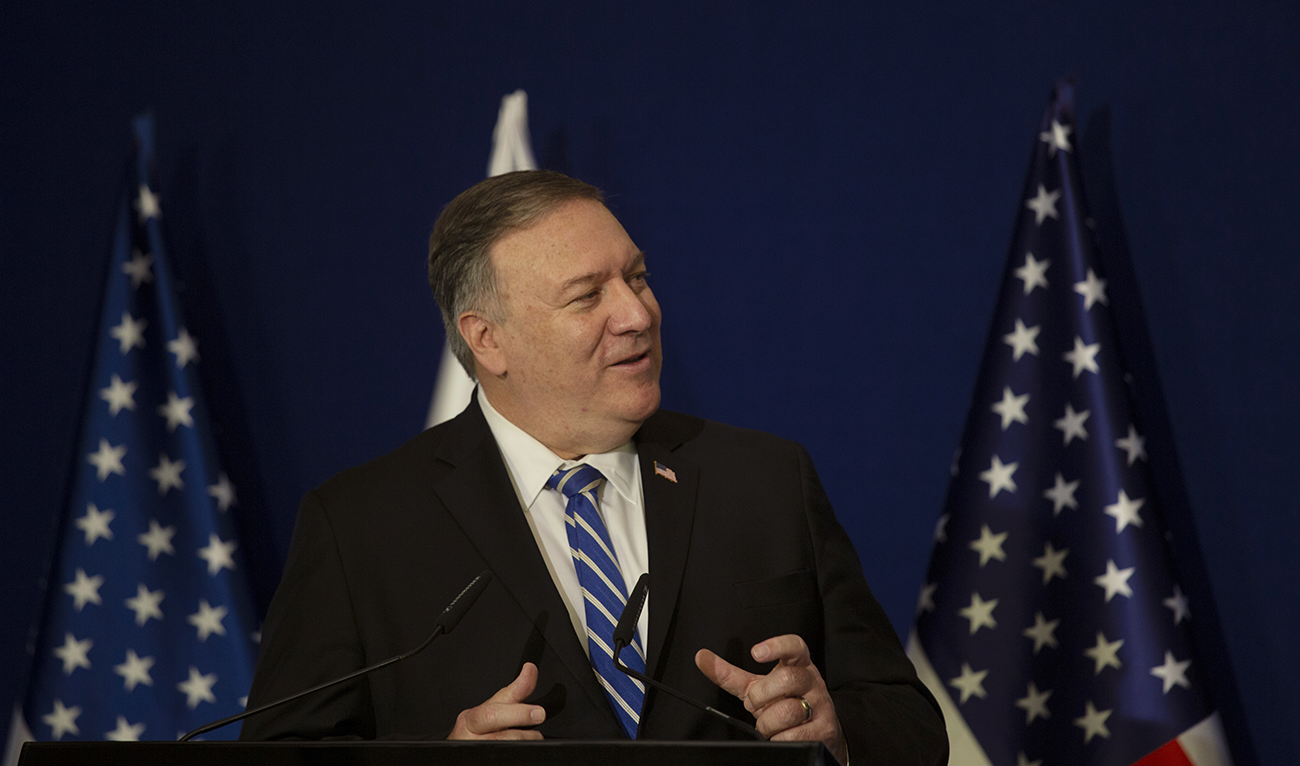NEW YORK: US Secretary of State Mike Pompeo’s decision to list the Boycott, Divestment and Sanctions (BDS) movement against Israel as an anti-Semitic organization has reignited a ferocious debate over what constitutes anti-Semitism, and where the line should be drawn regarding freedom of speech.
Kenneth Stern, an American attorney and director of the Bard Center for the Study of Hate, called Pompeo’s move “unproductive and troubling.”
Stern told Arab News: “Even though the BDS movers and shakers are clearly anti-Zionist, there are many organizations that support it because they’re concerned about Israel’s control of the West Bank. So to equate BDS and anti-Zionism as a whole with anti-Semitism is just factually wrong.”
Pompeo directed the State Department’s envoy on combating anti-Semitism “to identify organizations that engage in or otherwise support” BDS.
This has raised fears that Palestinian and international human rights groups that Israel accuses, rightly or wrongly, of supporting BDS could be denied US funding.
Though a self-identified Zionist, Stern considers the creation of a blacklist of groups that are highly critical of Israeli policy and society as problematic.
“That’s not how you deal with political differences, by creating a hard and fast rule that takes on all types of protest and dissent and says it’s a hateful one. In fact, it’s not,” he said.
But Harley Lippman, president of the Institute for the Study of Global Antisemitism and Policy (ISGAP), could not agree more with Pompeo.
“BDS is an international movement to bring Israel to its knees,” Lippman told Arab News. “They’re not just criticizing Israeli policies. They’re putting in place something that, if the nations of the world cooperated, could destroy Israel.”
Critics say BDS represents a hindrance to ending the Israeli-Palestinian conflict by rejecting the right of the Jewish state to exist and shunning bridge-building efforts on the grounds that they “normalize” Israel.
“All these claims were created by right-wing politicians because none of them are true,” Miko Peled, an Israeli-American activist, told Arab News.
“The demands of BDS are very, very clear: Ending the military occupation, equal rights for Palestinians and all the people who live in historic Palestine, and the right of refugees to return to their land and homes,” he said.
“These aren’t demands to hurt or expel anyone. They’re remedial, to remedy the reality in which Palestinians exist as a result of the creation of the state of Israel.”
Peled was born and raised in Jerusalem by a “very Zionist family, as Zionist as you can imagine.”
His grandfather signed Israel’s Declaration of Independence, his father was a general in the army, and many of his uncles were ambassadors.
But a journey into Palestinian territories made him come out “to support the struggle for justice and liberty in Palestine.”
He discovered “a narrative that I wasn’t told, that Israelis were kept away from,” and chronicled it in his book “The General’s Son: Journey of an Israeli in Palestine.”
Peled said: “The Palestinians in Palestine live under a brutal apartheid regime, subjected to racist laws and a police state that makes their life impossible.”
He believes that Pompeo’s move to brand BDS as anti-Semitic is based on a false premise: “That opposing and rejecting Israel and Zionism is racist, where in fact the opposite is true. Opposing Zionism is opposing racism and anti-Semitism. But they (Israel’s supporters) flipped it around. Now they perpetuate this myth everywhere.”
The US House of Representatives passed a resolution opposing BDS last year, and several American states have enacted similar laws.
Some of those laws have been struck down, however, for violating the First Amendment regarding freedom of speech.
A survey released last year showed that one in five Americans approved of BDS as a means of opposing Israeli policy toward the Palestinians.
“In campus after campus around the world, students are supporting BDS,” said Peled. “Is it bringing the collapse of the Israeli economy? Of course not. But these things take time. It’s about awareness. More and more people are aware that buying something that’s made in Israel is wrong.”
But Lippman, a longtime member of the American Israel Public Affairs Committee (AIPAC), said BDS is actually backfiring.
“All it does is galvanize people around Israel. We see ourselves threatened by this, so it ends up motivating us to do more for Israel and defend it more,” he said.
Despite pullouts from Israel by some companies, foreign investment in the country is booming. Israel relies less on exporting commodities than intellectual property such as software, which makes it harder to boycott.
“Israel, while it’s the most powerful nation in the Middle East, is also the most fragile. The fact that its economy is booming despite BDS doesn’t diminish the sinister, prejudiced nature of what they’re trying to do,” Lippman said.
“It’s like saying, ‘There’s a Nazi party in the US but they’re not hurting Jews right now, so what’s the problem?’ Well, not yet. But we all know the Nazi ideology. We know that their goal would be to murder all Jews,” added Lippman, whose family lost 86 members during the Holocaust.
Stern, author of “The Conflict over the Conflict,” which tackles the Israeli-Palestinian debate on college campuses, said: “I understand the desire in parts of the Jewish community and the evangelical community, that there’s one Jewish state and to target it and question its right to exist is a manifestation of anti-Semitism. I get why they want to push that.
“But I worry about the flip side of that. We’re implying in legal terms the idea that anti-Zionism is always anti-Semitism. It’s going to have a negative impact on the ability of Palestinians and others to make their cases. I may not be agreeing fully with their case, but they certainly have a right to make it.”

Pompeo: Other Arab countries will normalize relations with IsraelPalestinian rocket fire draws Israeli air strikes in Gaza

